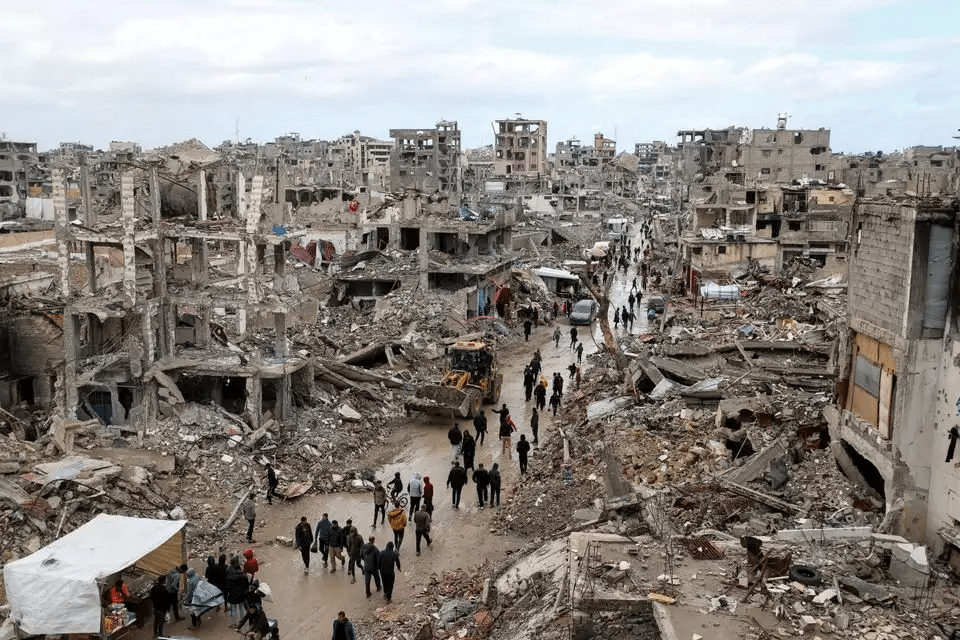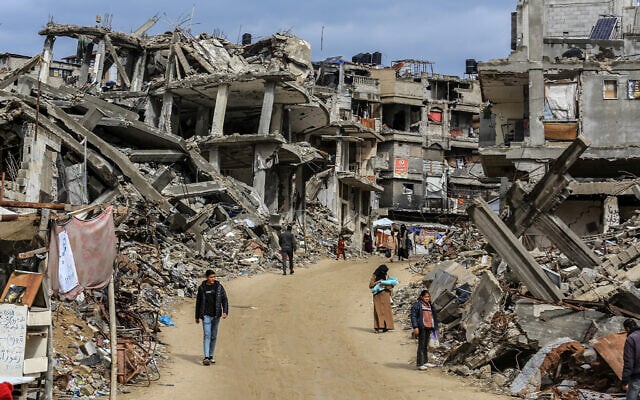Israel, US reject Egypt’s Gaza plan, Hamas welcomes it
An Arab League summit in Cairo on Tuesday endorsed the $53 billion five-year plan for the war-torn coastal enclave.

Hughes also reaffirmed Trump’s stance on Gaza’s future, stating, “President Trump stands behind his vision to rebuild Gaza without Hamas.” Despite the rejection of the plan, he emphasized that the United States remains open to “continuing talks” on the issue.
The White House’s position underscores what the U.S. administration sees as the critical need for a new approach to rebuilding Gaza, one that reflects the current conditions and ensures the safety and stability of the region.
Trump’s proposal involves resettling Gaza’s residents during the enclave’s reconstruction into a global economic hub.
Israeli Prime Minister Benjamin Netanyahu praised Trump’s Gaza plan on Monday, calling it “visionary and innovative” in a message thanking the president for his support during the Gaza war.
Hamas welcomes Egyptian plan
Hamas expressed support on Tuesday for the Egyptian plan, which would establish a committee to oversee rebuilding efforts and governance in the war-torn region.

Hamas terrorists release the bodies of four late Israeli hostages to the Red Cross in Khan Yunis, Feb. 20, 2025.
In a statement, the Palestinian terrorist group said, “We welcome the Gaza reconstruction plan adopted in the summit’s final statement and call for ensuring all necessary resources for its success.” They also voiced their backing for the creation of a “Community Support Committee” which would oversee relief efforts, reconstruction and governance in Gaza, as outlined in the temporary administrative body proposed by the Arab League summit in Cairo.
EU, UN back the Egyptian plan
At the Cairo summit, U.N. Secretary-General Antonio Guterres expressed strong support for the Arab-led initiative, stating, “I strongly endorse this plan. The U.N. stands ready to fully cooperate in this endeavor.”
E.U. Council President Antonio Costa also praised the plans presented by Egypt and other Arab states, saying they “give hope to millions of Palestinians in Gaza, the West Bank, and abroad” that “the terrible suffering we have all witnessed over the past year and a half” may come to an end.
Arab leaders accept Egyptian plan
Egyptian President Abdel Fattah el-Sissi told the closing session of the summit that the plan presented “has been endorsed,” claiming earlier in the day that “there will be no real peace without establishing a Palestinian state.”
After the summit, el-Sissi expressed his openness to any proposals and ideas from the international community, adding that he looked forward to collaborating with Trump.
Details of the Egyptian proposal
The 112-page draft document setting out Cairo’s five-year plan to rebuild Gaza at a cost of $53 billion outlines a two-phase approach.
The initial six-month recovery phase will focus on clearing rubble and setting up temporary housing, with an estimated cost of $3 billion.
The first phase of the plan aims to build 200,000 housing units in Gaza over the next two years, followed by a second phase that will add another 200,000 units. By 2030, the plan envisions the construction of hundreds of thousands of new homes, accommodating up to 3 million people. It also includes plans for an airport, industrial zones, hotels and parks.
El-Sissi stated that an “independent” Palestinian body would oversee Gaza’s management under the reconstruction plan, with Palestinian Authority head Mahmoud Abbas expressing his readiness for the P.A. to play a role in the effort.
The plan, reviewed by Reuters, envisions an international Governance Assistance Mission overseeing humanitarian aid and reconstruction efforts in Gaza.
The preamble of the draft stresses that no significant international funding for Gaza’s rehabilitation and reconstruction will be provided as long as Hamas remains the dominant armed political force controlling local governance.
It proposes an International Stabilization Force led by Arab states, funding through donor conferences and Palestinian involvement in rebuilding efforts. The plan excludes Hamas and does not place the P.A. in a central role. Instead, a steering board comprising Arab countries, the Organization of Islamic Cooperation, the United States and the European Union would oversee implementation.


No comments:
Post a Comment